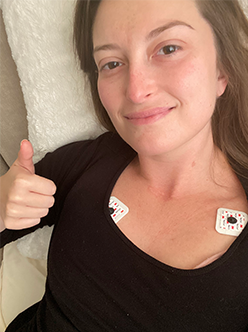 Rare Disease Day can be a fun and favorable way to honor those living with a chronic illness like myasthenia gravis (MG). People often take the 24 hours to create awareness around a specific disease state, engage with fellow rare disease community members, and push advocacy efforts that inspire positive change. As an MG patient myself, however, Rare Disease Day is just an ordinary day because every day is rare disease day.
Rare Disease Day can be a fun and favorable way to honor those living with a chronic illness like myasthenia gravis (MG). People often take the 24 hours to create awareness around a specific disease state, engage with fellow rare disease community members, and push advocacy efforts that inspire positive change. As an MG patient myself, however, Rare Disease Day is just an ordinary day because every day is rare disease day.
The lived experience of an MG patient is, for lack of a better word, hard. We face obstacles most will never encounter, ponder thoughts that many will never contemplate, and make decisions based upon physical need instead of the heart’s desire. Getting accustomed to this new normal is not easy. There’s a grieving process, an adjustment of mindset, and a period of letting go of once was.
Prior to my official MG diagnosis, my family spent years searching for answers and advocating for comprehensive healthcare on my behalf. Receiving such a diagnosis as a child was relatively rare twenty years ago. The advocacy work and hunt to further understand the MG experience only increased as we navigated this new lifestyle.
The label “myasthenia gravis” substantiated the physical elements of my disability. After two years of misdiagnosis and no one believing my reality, having the words that gave my experience a frame of identity was monumental. Yet, the words “myasthenia gravis” just became terms used to describe my physical debilitations. I quickly learned that these strange words will never protect me from judgment, justify the decisions I make, or shield me from the emotional pain this disease allows. That falls on me.
My misdiagnosis may have been the reason I started advocating, but it is the inequities of living with a rare disease that compel me to continue doing so. The MG community has made historic strides in research and developing treatments, but there is still plenty of work to be done. I choose to celebrate Rare Disease Day by favoring improved diagnostic processes, backing targeted therapies, creating access to better mental health care, and illustrating the support rare disease patients need on the other 364 days of the year.
Meridith serves as assistant vice president of patient engagement, advocacy, and policy. Propelled by her own MG diagnosis in 2005, she sought to build a career supporting families faced with chronic illness. She has a master's degree in social work and has years of experience working within the nonprofit sector.

